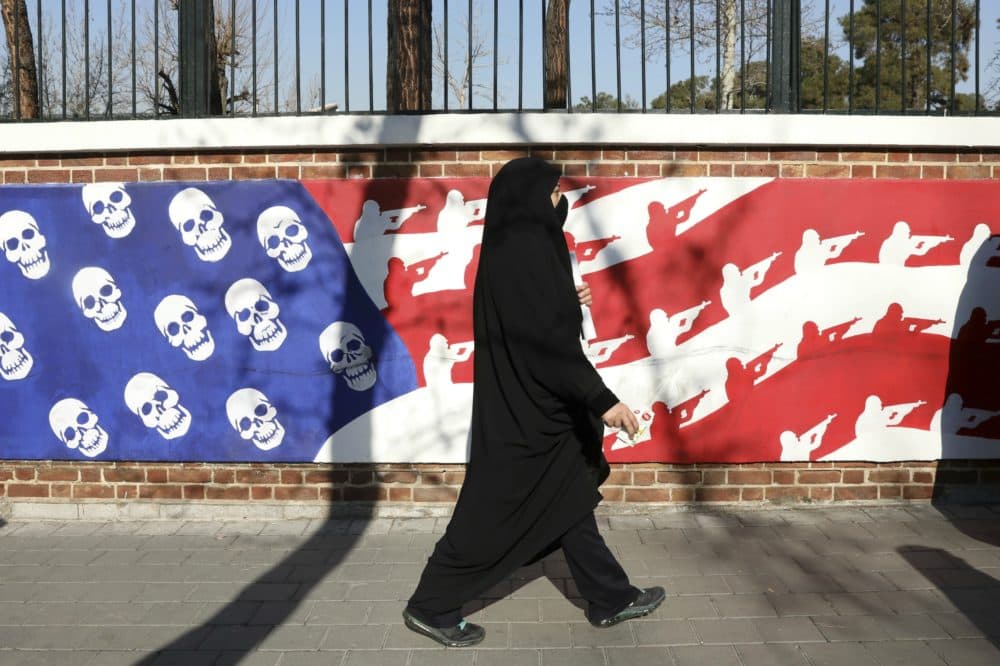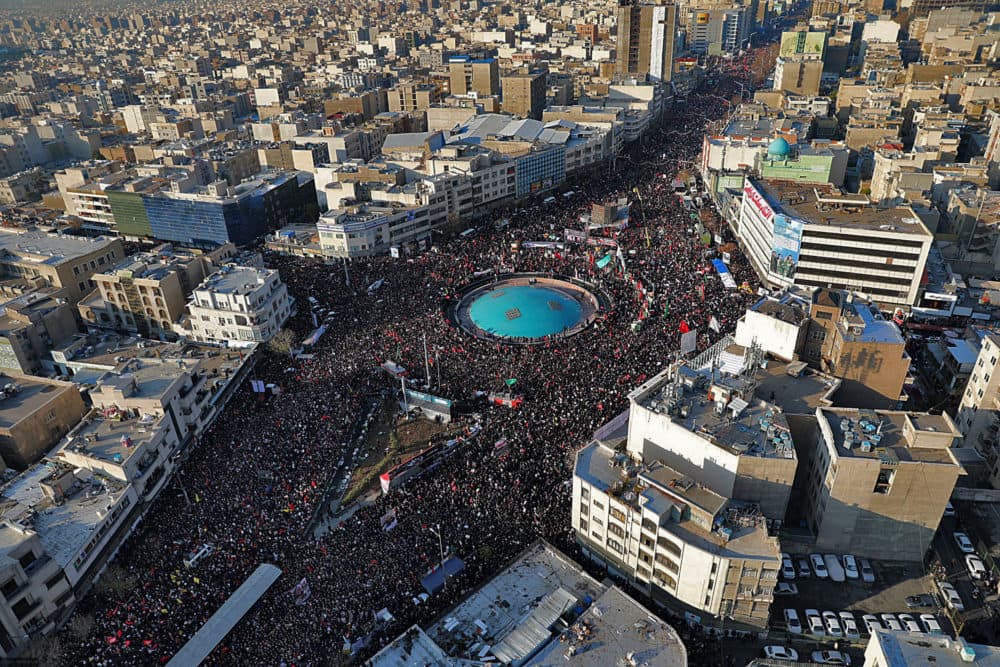Advertisement
Commentary
Soleimani Killing Dispensed Justice. It Still Wasn’t Smart

By purely moral calculus, President Trump’s assassination-with-drone of Iranian Maj. Gen. Qassem Soleimani righted countless wrongs. The leader of the Quds Force, Iran’s military intelligence and foreign insurgency unit, Soleimani had hands crimson with the deaths of hundreds of Americans and hundreds of thousands of others, having engineered bloodshed from Iraq to Syria to Lebanon. His demise jump-started happy demonstrations in the Middle East (and, to be sure, protests by the general’s grieving admirers).
But what’s moral isn’t necessarily smart or legal. Trump’s act may come up short for lawfulness; it almost certainly will prove stupid. With Iran vowing retaliation, the president needlessly jeopardized American lives and interests.
How can a morally justifiable assault on a mass murderer be contrary to American national security? Two words: Saddam Hussein.
Invading Iraq and deposing its ruling sadist ended decades of his crimes against humanity. Saddam’s toppling undeniably bent the moral arc of the world, to quote Martin Luther King, Jr., toward justice. Yet after tens of thousands of war dead, including 4,500 American troops; others maimed or gruesomely disfigured; and Iran’s theocrats filling the Iraqi power vacuum we created, even those of us who supported the war on the mistaken belief that Saddam had WMD have acknowledged our catastrophic error. The United States would have been better off leaving him in power.
With Iran vowing retaliation, the president needlessly jeopardized American lives and interests.
The Saddam case offers a lesson about Soleimani, said Trita Parsi, executive vice president of the Quincy Institute, a diplomacy-supporting think tank: “It’s not about whether it’s justified or not. You can point to something bad that someone did and, you know, make a moral justification to do something against that person or entity. That doesn’t mean that the consequences end there.”
That the Iraq War was a mistake is undeniable from years of hindsight, something that’s not available less than a week after Soleimani’s death. But if the White House’s justification for its decision is true — that Soleimani was “actively developing plans to attack American diplomats and service members in Iraq and throughout the region” — hindsight does suggest that that homicidal plotting was partially Trump’s fault. While Iran’s support for terror groups is an old cancer, it went into remission vis-a-vis the U.S. when Barack Obama negotiated and implemented his deal halting Iran’s nuclear program.
That was “the only period in which [Iranian-backed] Shia militias actually did not attack U.S. forces,” Parsi says. After Trump heedlessly bailed on the nuke deal, the pace of attacks picked up again.
Advertisement
Any action as grave as the Soleimani killing (it’s been compared to Iran taking out the chairman of our joint chiefs) requires careful thought in advance. But from his tweets to his fly-by-the-seat diplomacy, Trump’s fabled impulsivity denies him rational people’s benefit of the doubt on that score. The fact that the White House exhorted Americans in Iraq to flee, immediately, to avoid reprisals does not inspire sound sleep over the planning that went into this.
Keep in mind that the killing capped days of escalating strikes by each side; each has been retaliating against the other. And even if Iran were to stand down now (unlikely; nations don’t risk telegraphing that foes can kill their leaders with impunity), Parsi worries that Middle East insurgents indebted to Soleimani for aid and not on Teheran’s leash might seek to avenge him themselves. Has our government made contingencies for that?
And how carefully did Trump ponder the legality of what he was about to do? A 1976 executive order bans the U.S. from assassinations, though presidents occasionally have claimed circumstances for which it allegedly doesn’t apply. The most prominent was Barack Obama, who eradicated thousands of terrorism suspects (not to mention many civilians) with “targeted killings.”

But unlike Obama, who argued that targeting non-state actors was legal, Trump took out a senior military leader. And while experts are split on the lawfulness of Soleimani killing, it appears to fail one commonly accepted defense for such extreme measures: that the planned attacks on Americans were so “imminent” that there wasn’t time for any other measure but to kill him.
With headlines screaming about the brink of war, a little perspective is in order. While we can’t be sure what comes next, Iran doesn’t want all-out conflict with the potent U.S. military and its allies, and Trump doesn’t want a nasty war that might mess up his hoped-for re-election. What is certain is that the man who campaigned on ending Middle East wars and scaling back our involvement there remains mired in Afghanistan, is embroiled in violence with Iran, and is finding it necessary to up our troops in the region, injecting 4,500 more to protect against retaliation for Soleimani.
The Washington Post captured the mood by headlining one column: “Whatever happens with Iran, I’m confident Donald Trump can get us through it.” In the writing business, this is known as being facetious.
